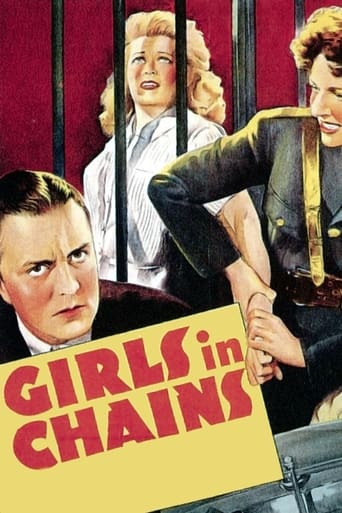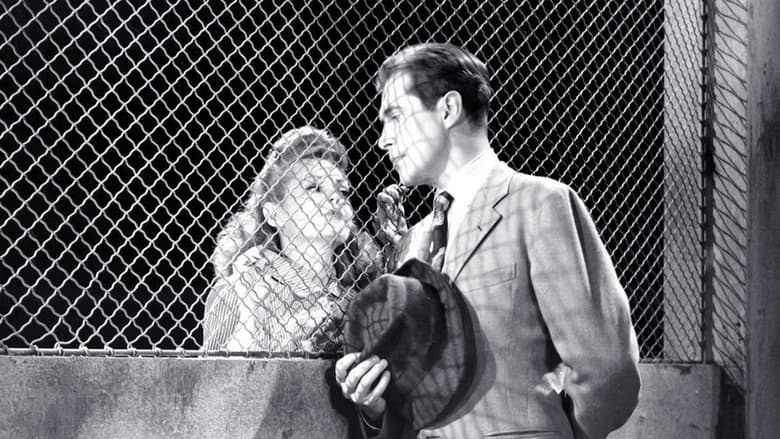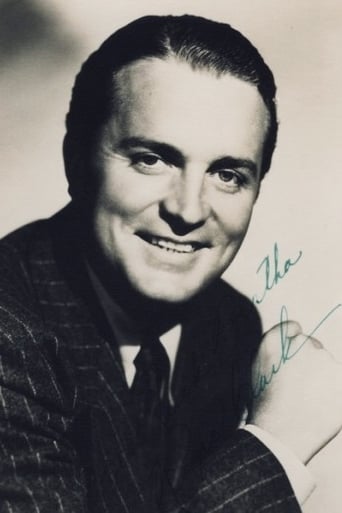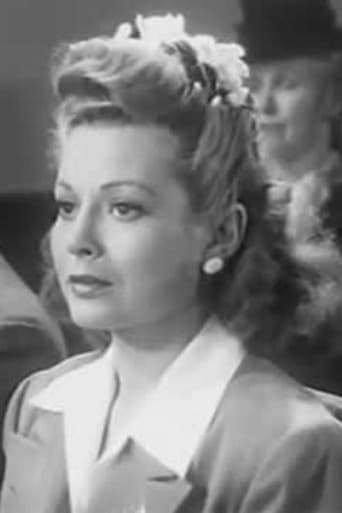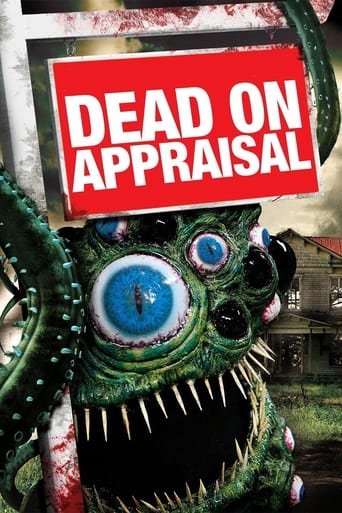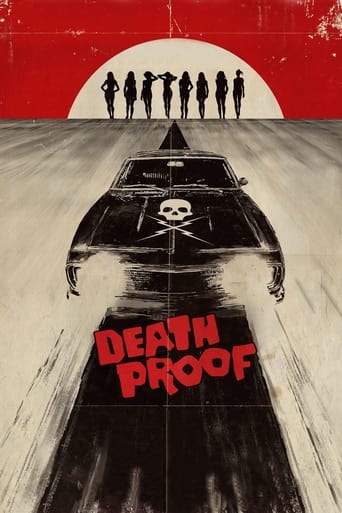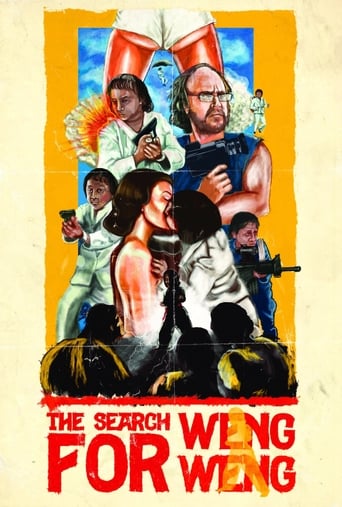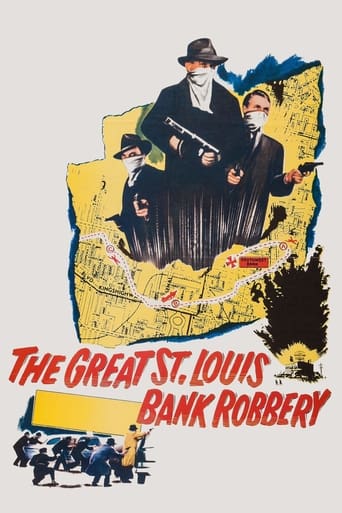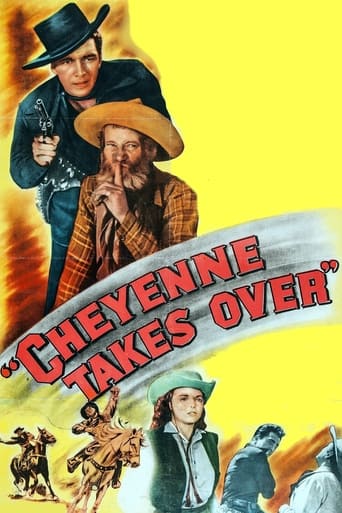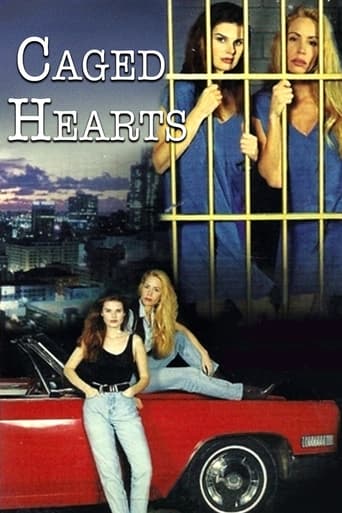Girls in Chains (1943)
A fired teacher finds work at a girls reform school and helps a detective on a case.
Watch Trailer
Cast


Similar titles
Reviews
You won't be disappointed!
This is one of the few movies I've ever seen where the whole audience broke into spontaneous, loud applause a third of the way in.
By the time the dramatic fireworks start popping off, each one feels earned.
An old-fashioned movie made with new-fashioned finesse.
This monstrosity should settle for once and for all that Edgar Ulmer is not the continental wunderkind that Peter Bogdanavich held him to be, (a view, incidentally, that Ulmer did all he could to promote.) True, in "Strange Illusion,"and "Detour," Ulmer delivered films with suspense and pacing, whilst in "Bluebeard," he delivered a fairly convincing 19th century atmosphere, (heavily influenced by German expressionism but under-cut by the film's supporting actresses who sound like Bronx stenographers rather than Parisian coquettes.) The "Black Cat" deserves separate treatment inasmuch as it manages disturbing aesthetical accomplishments of an altogether singular, (if morally dubious) order.But such accomplishments do not extend to the whole of his work, and most of the time, (until at least his allegedly two best films--"Club Havana," and "Her Sisters Secret," again become extant) we must confront the fact that Ulmer may as well be Jean Yarborough, or Lew Landers, or Sam Newfield or Tommy Carr, which is to say he turned out PRC dreck utterly without distinction."Girls in Chains" is an excellent case in point. Unless one counts the shadowy rooftop chase finale, (which pre-figures "Bluebeard") this picture is risible in its ineptitude.Where to begin? The plot? (and since Ulmer is one of the writers he shares the blame): the matron, (Arline Judge) of a woman's correctional institution is thwarted in her attempts at prison reform by a corrupt warden and his mafia cronies.There are shades of Irene Dunne's earlier "Ann Vickers" in this, but this treatment is so pulpy that it's a pity the "Carol Burnett Show" never got ahold of it. Ulmer's alleged literary fixations here betoken a fondness for "The Police Gazette" rather than Faust.While we're at it--be sure and note the musical score too. This is stock music utterly unsuited to the characters or situations it underpins--frequently to hilarious results. Thus, gangster, con man extrordinaire, "Johnny Moon"'s scenes are underscored by a syrupy rendition of "When Johnny Comes Marching Home" !!! Are we, the audience, supposed to feel patriotic and sentimental at knowing this murderer has been freed from prison by a corrupt jury, that he has "come marching home again" to yet kill again?Then too, since Mr. Ulmer is noted for his oversight of art direction--well exactly what happened here?! The inside of Miss Judge's office looks like several forgotten flats pushed to the edge of the sound stage, waiting to be dressed. Couldn't someone have hung a picture on the picture hook that hangs so visibly above the lamp behind her? True, the flat of gangster Johnny Moon, and a nightspot known as the "Rendevous" do show traces of down-market PRC swank, but elsewhere the picture is visually starved.The characterization is similarly absurd--strictly by the books gangster clichés--the only thing missing is the name "Mugsy".Case in point: an elderly alcoholic who stumbles in and out of the story, (for comedy relief purposes--of which he affords neither) who is eventually tossed into a dam! (that looks like stock footage of the Tennessee Valley Authority).As the lead, Miss Judge appears to be operating on about 100 mg. of Valium during most of her scenes, (and who can blame her--since she has read the script and is probably thinking, "...If only I were still under contract to Fox...".Earlier posters, however, reveal their ignorance of World War II coiffures in their gibes at her hairdo. Miss Judge's up-sweep was all the rage at the time, and, in fact, many other actresses wore modified versions of the same style."Girls in Chains" is for connoisseurs of perfectly dreadful films. Rest assured that Mr. Ulmer did us no favors with this one.
This movie is bad on practically every level -- the wooden acting, the unbelievable plot, the miscast actors, the cheesy sets.Even Arline Judge's hair-dos and hats manage to be annoying, and that's saying something.How can "Girls in Chains' not include any chains? Or, for that matter, any actresses under age 30? This is my second Edgar Ulmer film -- the other was "Jive Junction" -- and I can't see what his reputation is based upon. To be fair, both films were very low-budget affairs, and they look drab and poorly-lit. If nothing else, they help you appreciate how much good sets and costumes add to a picture.
This is a very low budget film about women who were put behind bars in a young woman's correction facility which is controlled by a mobster named Johnny Moon, (Addison Randall). Johnney Moon controls the city government and has given his right hand hood the position as warden of this correction facility. The girls are treated like they were in a federal prison, with hard work in a laundry and solitary confinement. There is no hope for these women to rehabilitate themselves in order to obtain training for job positions on the outside in order to adjust to society. Helen Martin, (Arlene Judge) has a sister who is married to Johnney Moon and Helen has lost her job because of the bad reputation of her brother-in-law and has been advised to become a social worker at the prison. As soon as Helen walks into the prison, the story becomes interesting.
I don't normally post for films I haven't seen, but the comment here from 1999 caught my eye. It mentions that director Edgar G. Ulmer snitched to HUAC. I had never heard this before, nor could I find any confirmation of it. I assume the poster confused Ulmer with one of his contemporaries, Edward Dmytryk, one of the Hollywood Ten who did indeed cooperate with the committee. At any rate, 8 years is long enough for that comment to go unchallenged. I'd hate to think that Ulmer's reputation could be tarnished by this apparent error, especially among viewers of these posts who may have no other knowledge of the man or his career.

